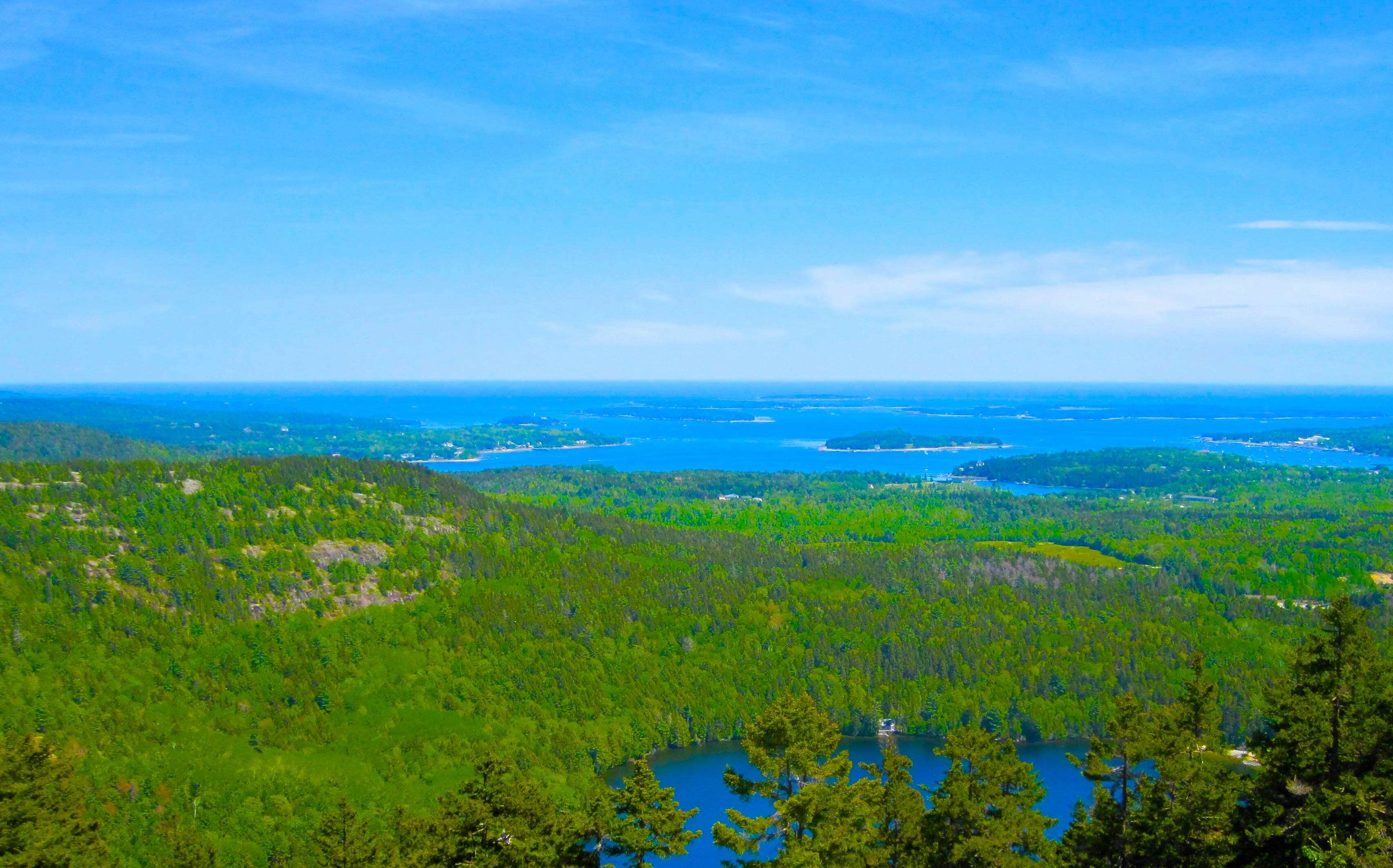
Processing Your Payment
Please do not leave this page until complete. This can take a few moments.
Visitation is down, but Acadia will roll out reservation system to ease congestion
 Courtesy / National Park Service/Laura Cohen
Despite a decline in visitors during the pandemic, Acadia National Park is sticking with its plan to roll out a pilot vehicle reservation system in order to relieve parking congestion.
Courtesy / National Park Service/Laura Cohen
Despite a decline in visitors during the pandemic, Acadia National Park is sticking with its plan to roll out a pilot vehicle reservation system in order to relieve parking congestion.
Despite the pandemic, Acadia National Park is sticking with its plan to roll out a pilot vehicle reservation system in order to relieve parking congestion.
The pilot program will require reservations for vehicles to enter the Sand Beach entrance station and the road to the summit to Cadillac Mountain, two of the park’s most popular spots.
“The majority of the park is open just as it has always been, including access to all of the carriage roads and all but a few hiking trails,” Superintendent Kevin Schneider said in a new release. “If you want to visit the park’s most popular areas during peak times with your vehicle, you now have the opportunity to guarantee access with a reservation. If you walk or bike into a vehicle reservation area, reservations are not required.”
Acadia began a gradual reopening on June 1.
During a community forum held by the town of Bar Harbor last week, Schneider said the pilot will provide valuable information on how to implement a full season of vehicle reservations in 2021.
Schneider noted that several other national parks have implemented reservation systems this year not only to manage congestion but to achieve physical distancing during the pandemic.
“So we felt this is a good year to move forward on this,” he said.
Although the public health crisis has generally dampened visits, Acadia has been experiencing some of the congestion that originally prompted the reservation system in a transportation plan that originated in 2015 and was finalized last year.
Acadia gets roughly 3.5 million visitors a year, ranking it No. 7 among national parks.
But visitation in June was down 59% from June 2019. July is expected to be up, though final numbers are not yet available. Entrance fee sales indicate that the number of visitor is ticking up week by week.
The number of annual passes sold in July are about equal with the number sold in July 2019. But the percentage, compared with overall pass sales, is significantly higher this year, he said.
“Maybe that means people are tending to stay here several weeks or a month, something that’s beyond the seven-day pass, which is usually our No. 1 sales item."
Vehicle congestion at hot spots like Cadillac is exacerbated by the lack of the Island Explorer this year. The Explorer is a shuttle bus system designed to encourage visitors to leave their vehicles in town and access the park by bus. The service was indefinitely postponed this year
“Without the Explorer running, we’ve noticed more congestion and traffic in the park,” Schneider said.
As a result, rangers closed the access road to the Cadillac Mountain summit five times in the last couple of weeks.
“Sometimes we turned away as many as 100 cars trying to go up Cadillac,” he said. At the summit, the parking area was “not just full, but bubbling over with multiple cars parked illegally.”
20-minute queues
Congestion is resulting in waits as long as 20 minutes at the Sand Beach entrance station due to long vehicle queues, according to Schneider.
The pilot, developed by the National Park Service, will run from Oct. 1 to Oct. 18. Vehicle reservations are available for purchase only online, for $2 each; reservations will not be sold at the park. Users must have an entrance pass to the park. Click here to access the reservation website.
The Sand Beach entrance will require vehicle reservations from 7 a.m. to 5 p.m. The Cadillac summit road will require vehicle reservations from 4:30 a.m. to 6:30 p.m. All reservations provide a timed entry, but do not require a departure time. Reservations do not guarantee a specific parking space.
Commercial tour operators with a commercial use authorization and accredited school groups with an authorized entrance fee waiver do not require a vehicle reservation during the pilot in October.
Conducting a pilot of the system in October will help the park prepare a full season of vehicle reservations in 2021.
"Providing a positive visitor experience is in the best interest of the business community here in Bar Harbor and around Acadia,” Alf Anderson, executive director of the Bar Harbor Chamber of Commerce, said in the release. “Knowing in advance when a family will have a convenient place to park while they watch the sunrise on Cadillac Mountain, marvel at Thunder Hole, or play on Sand Beach will make their visit to Acadia National Park more relaxing and enjoyable."
The timed reservation system is expected to relieve gridlock and congestion at the park’s busiest sites during peak times, said Friends of Acadia’s president, David MacDonald.
“We have heard again and again from visitors about the frustration of being stuck in traffic or turned away when the Cadillac summit road or Sand Beach entrance become gridlocked by overcrowding,” MacDonald said in the release. “Having the ability to pre-plan with a reservation, just as you would with a whale watch or a carriage ride or a dinner out, should provide more certainty and a better experience once in the park.”

Vehicle reservations are one management action of the Acadia National Park Transportation Plan, which is intended to improve visitor safety, reduce traffic and parking congestion, and protect park resources and values. Other components of the plan include enhancing Island Explorer bus service and developing the Acadia Gateway Center transit hub in Trenton and a new visitor center and parking area in Hulls Cove.
Normalizing operations
The park’s headquarters remains closed to the public and employees who can work from home are doing so, Schneider said. But generally, he said, the park’s operations are normalizing, with information being provided under open-air tents outside at the Hulls Cove Visitor Center and park crews busy in the field. The park has fewer custodians this year so not all restrooms have reopened. All of the park’s campgrounds remain closed.
Normally the park houses about 80 employees in park service housing. This year, to maintain physical distancing guidelines, it’s housing 38 employees.
“That was one of the decisions we made early on to minimize risk to our workforce,” he said.
Schneider predicted that tourism areas like Acadia are going to be among the first to bounce back from the pandemic’s impacts.
“People are going to feel safe getting in their cars and going to a predominantly outdoor destinations,” he said.
Maintenance funds
In related news, President Donald Trump yesterday signed into law the Great American Outdoors Act, a conservation bill that addresses the deferred maintenance backlog at national parks, national wildlife refuges and national forest lands; and provides full funding for the Land and Water Conservation Fund.
The bill that includes $9.5 billion over five years to help catch up on a $12 billion maintenance backlog at national parks. Acadia National Park’s backlog of needed repairs is estimated at $65 million.
MacDonald said the law is good news for Acadia and the local communities and their economies in Maine.
"It means that funds will become available to begin to tackle the nearly $65 million in deferred maintenance at Acadia, which has hundreds of miles of motor roads, carriage roads and hiking trails making it one of the most popular parks in the entire parks system,” MacDonald said in a separate release.
“It also ensures reliable funding to help create new conservation lands and recreation open spaces throughout Maine, investments that could not come at a better time."














0 Comments